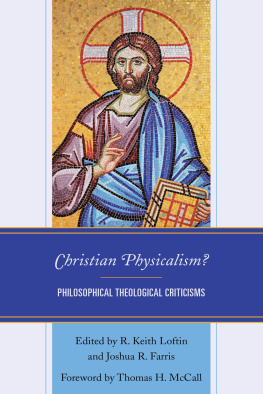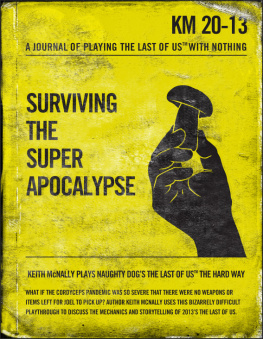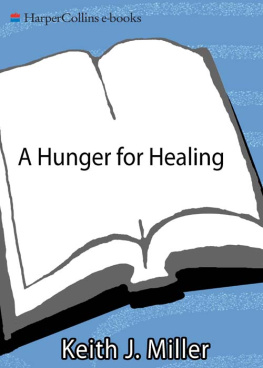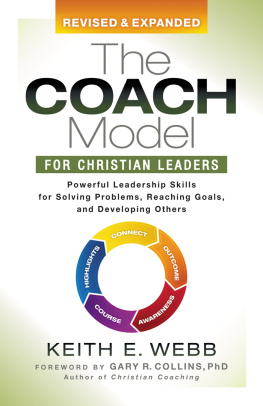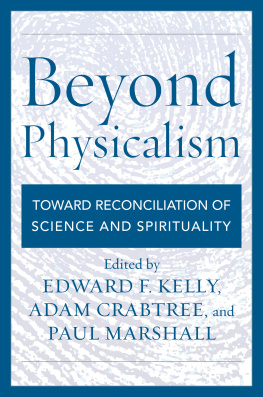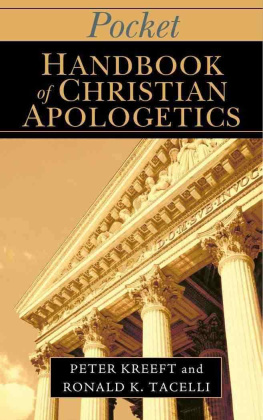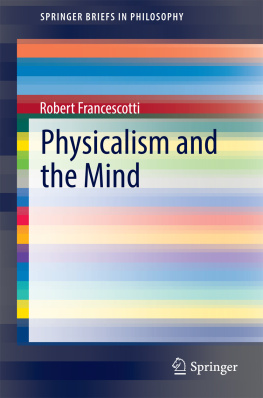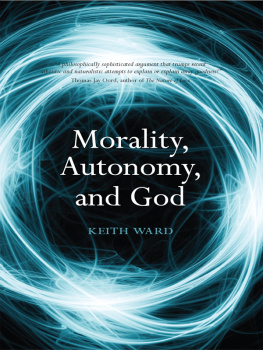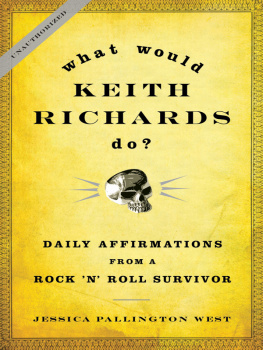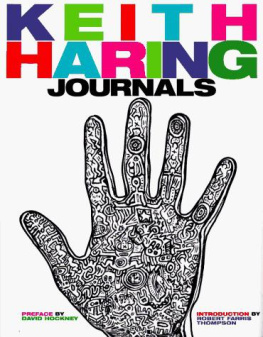R. Keith Loftin - Christian Physicalism?
Here you can read online R. Keith Loftin - Christian Physicalism? full text of the book (entire story) in english for free. Download pdf and epub, get meaning, cover and reviews about this ebook. publisher: Lexington Books, a division of Rowman & Littlefield Publishers, Inc., genre: Religion. Description of the work, (preface) as well as reviews are available. Best literature library LitArk.com created for fans of good reading and offers a wide selection of genres:
Romance novel
Science fiction
Adventure
Detective
Science
History
Home and family
Prose
Art
Politics
Computer
Non-fiction
Religion
Business
Children
Humor
Choose a favorite category and find really read worthwhile books. Enjoy immersion in the world of imagination, feel the emotions of the characters or learn something new for yourself, make an fascinating discovery.
- Book:Christian Physicalism?
- Author:
- Publisher:Lexington Books, a division of Rowman & Littlefield Publishers, Inc.
- Genre:
- Rating:3 / 5
- Favourites:Add to favourites
- Your mark:
- 60
- 1
- 2
- 3
- 4
- 5
Christian Physicalism?: summary, description and annotation
We offer to read an annotation, description, summary or preface (depends on what the author of the book "Christian Physicalism?" wrote himself). If you haven't found the necessary information about the book — write in the comments, we will try to find it.
Christian Physicalism? — read online for free the complete book (whole text) full work
Below is the text of the book, divided by pages. System saving the place of the last page read, allows you to conveniently read the book "Christian Physicalism?" online for free, without having to search again every time where you left off. Put a bookmark, and you can go to the page where you finished reading at any time.
Font size:
Interval:
Bookmark:

Christian Physicalism?
Christian Physicalism?
Philosophical Theological Criticisms
Edited by R. Keith Loftin and Joshua R. Farris
Foreword by Thomas H. McCall
LEXINGTON BOOKS
Lanham Boulder New York London
Published by Lexington Books
An imprint of The Rowman & Littlefield Publishing Group, Inc.
4501 Forbes Boulevard, Suite 200, Lanham, Maryland 20706
www.rowman.com
Unit A, Whitacre Mews, 26-34 Stannary Street, London SE11 4AB
Copyright 2018 by Lexington Books
All rights reserved. No part of this book may be reproduced in any form or by any electronic or mechanical means, including information storage and retrieval systems, without written permission from the publisher, except by a reviewer who may quote passages in a review.British Library Cataloguing in Publication Information Available
Library of Congress Cataloging-in-Publication Data
Names: Loftin, R. Keith, 1981- editor.
Title: Christian physicalism? : philosophical theological criticisms / edited by R. Keith Loftin and Joshua R. Farris.
Description: Lanham : Lexington Books, 2017. | Includes bibliographical references and index.
Identifiers: LCCN 2017049612 (print) | LCCN 2017048252 (ebook) | ISBN 9781498549240 (electronic) | ISBN 9781498549233 (cloth : alk. paper)
Subjects: LCSH: Human bodyReligious aspectsChristianity. | Theological anthropologyChristianity. | MaterialismReligious aspectsChristianity. | MatterReligious aspectsChristianity. | Substance (Philosophy)
Classification: LCC BT741.3 (print) | LCC BT741.3 .C47 2017 (ebook) | DDC 233/.5dc23
LC record available at https://lccn.loc.gov/2017049612
 The paper used in this publication meets the minimum requirements of American National Standard for Information SciencesPermanence of Paper for Printed Library Materials, ANSI/NISO Z39.48-1992.
The paper used in this publication meets the minimum requirements of American National Standard for Information SciencesPermanence of Paper for Printed Library Materials, ANSI/NISO Z39.48-1992.
Printed in the United States of America.
Keith: For Julie, my love.
Joshua: To John Cooper, for his spirited theological defenses of the soul and the intermediate state.
Contents
Thomas H. McCall
Joshua R. Farris and R. Keith Loftin
Paul L. Gavrilyuk
Thomas Atkinson
J. P. Moreland
Angus Menuge
R. Keith Loftin and R. T. Mullins
Jason McMartin
Marc Cortez
R. T. Mullins
R. T. Mullins
Matthew J. Hart
R. Scott Smith
Brandon Rickabaugh and C. Stephen Evans
Jonathan J. Loose
James T. Turner, Jr.
Brandon Rickabaugh
John W. Cooper
Charles Taliaferro
Jonathan J. Loose
Bruce L. Gordon
Howard Robinson
Gerald OCollins
The past few decades have witnessed some truly remarkable shifts in Christian views of the human person. Among the most important changes is the large-scale movement from various versions of mind-body dualism to the adoption and defense of various forms of physicalism. For centuries, Christian theologianspatristic, medieval, and modern, and Orthodox, Roman Catholic, and Protestanthave understood the mind or soul as essential to humanity. There have, of course, been significant disagreements among these theologians; some have thought that a human person is a soul that has a body (or at least usually or ideally has a body), others have thought that the human person has a soul. Various accounts of the mind-body relation have been proffered, and it would be a mistake to lump them all togetherclearly, Origens theory, for instance, is not to be confused with that of Thomas Aquinas. Despite the real and important differences, however, there is significant continuity within the broad Christian tradition (especially when seen in comparison to the recent developments).
Matters have changed significantly. Many Christian theologians and philosophers, often in dialogue with such widely diverse fields as philosophy of mind, biblical studies, cognitive science, and neuroscience, have begun to adopt and defend distinctly physicalist accounts of the human person. Arguments in favor of physicalism come from various angles; some make a case that the presumption in favor of dualism was really grounded in Greek philosophy and was always really unworthy of Christian theology, some argue that the case for dualism was based upon poor exegesis of Scripture, some go further and argue that Scripture actually supports physicalism, and some make the case that physicalism best accounts for the Christian hope of the resurrection of the body . Appeals are made to exegesis, science, and metaphysics; concerns are also raised about the ethical implications (either perceived or real) of the various versions of dualism. And some systematic and philosophical theologians are now taking the further steps of applying physicalist accounts of anthropology to other areas of Christian doctrine. Indeed, we have now reached the point where it is sometimes taken for granted that physicalism is the most fitting Christian viewor even the only truly Christian position.
But questions abound; questions about the alleged weaknesses of various forms of dualism, questions about the supposed strengths of physicalism, questions about the various levels and kinds of arguments for and against physicalism, and questions about the theological fecundity (or aridity) of physicalism. Does physicalism really offer practical advantages in moral theology and pastoral care (as is sometimes claimed)? Does physicalism offer a better interpretation of Scripture? Indeed, can it even offer an adequate understanding of biblical passages that seem to presuppose or teach dualismhow might the physicalist provide an appropriate account of Pauls statement about those who are absent from the body but present with the Lord (2 Cor 5:8)? Is physicalism any better off with respect to the problem of interaction, or does any Christian physicalist who believes in divine agency not encounter this problem elsewhere? Can physicalism cohere with classical Christian commitments to the resurrection of the body (and the intermediate state)? What is the relation of physicalism to such important doctrines as original sin and sanctification? Is physicalism adequate for Christology, or does it run aground on the shoals of heterodox views? Clearly, much work remainsthere is much to be done not only at the exegetical, historical-theological and theology-and-science levels but also with respect to the ongoing metaphysical and constructive-systematic theological arguments and issues. This volume takes up these challenges with sophistication, rigor, and a deep sense that these things really matter. The essays in this book push back against physicalism, and they push hard. Taken together, they present a significant challenge to the physicalist option, and the book offers a careful and spirited defense of dualism. All who take it seriously will be better off for having engaged with it. Tolle lege.
Thomas H. McCall
Trinity Evangelical Divinity School
A number of people have helped this project along in various ways, whether by providing feedback on chapters, encouragement, or helpful discussion. Our thanks to Paul Gould, Ross Inman, Travis Dickinson, S. Mark Hamilton, Jon Loose, Bruce Gordon, Jerry L. Walls, and Oliver Crisp for their help, advice, or encouragement concerning the present project. A special thanks goes to Charles Taliaferro for his advice and his stepping in to fill a need for the volume. Thanks to all the Christian philosophers who have devoted their lives to advancing substantive critiques of physicalism and defending the need for the soul. We have in mind several examples including John Cooper, Charles Taliaferro, Richard Swinburne, Howard Robinson, J. P. Moreland, Alvin Plantinga, Stewart Goetz, Daniel Robinson, Keith Yandell, and Dean Zimmerman, among others.
Font size:
Interval:
Bookmark:
Similar books «Christian Physicalism?»
Look at similar books to Christian Physicalism?. We have selected literature similar in name and meaning in the hope of providing readers with more options to find new, interesting, not yet read works.
Discussion, reviews of the book Christian Physicalism? and just readers' own opinions. Leave your comments, write what you think about the work, its meaning or the main characters. Specify what exactly you liked and what you didn't like, and why you think so.

